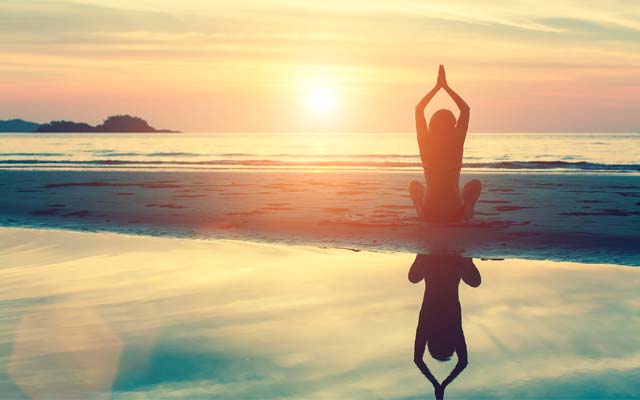The pandemic has brought about a renewed focus on wellness, alongside newfound demands for secluded, sanitised stays. Anne Somanas delves into how Thai luxury hoteliers are realigning their strategies to suit the future
Thailand’s luxury hospitality sector is gearing up post-lockdown to attract domestic travellers who now seek exclusive escapades with a component of seclusion, valued-adds and heightened wellness experiences.
The pandemic has only served to enhance the existing demand for personalisation and bespoke experiences across the board — now with an added element of safety and seclusion that Thailand’s luxury hotels are going the extra mile to satiate.

According to Bruno Huber, general manager at Mövenpick BDMS Wellness Resort, Thailand’s domestic destinations will need to reinvent themselves to stay attractive to the high-income group. “It will require a level of creativity from us in the hospitality industry to create new, aesthetically pleasing and authentic experiences that are engaging to combat the market’s short attention span,” he said.
This heightened expectation for creative offerings among high-end travellers is also echoed by Nick Downing, general manager at The Siam Hotel, who observed guests “more often than not requesting bespoke itineraries or ideas”.
Downing noted that balancing the expected personal touch and connection in luxury hospitality with safety protocols has become a fine juggling act – to that end, the hotel now reaches out to its guests pre-stay to find out their concerns relating to the coronavirus and how they wish for the hotel to address their unease.
With the halt on international tourism necessitating Thailand’s shift to rely on its own vast domestic market, hoteliers have had to evolve their strategies.
Vitanart Vathanakul, CEO of Royal Cliff Hotels Group, said differentiating between domestic and international market expectations is paramount.
“Everyone views luxury travel differently, so what Thais are looking for will be different from what the international clientele is expecting,” he told TTG Asia Luxury, adding that hotels with “strong preventative programmes combined with a high level of hygiene” will win customers’ trust.
The tussle for the local tourist dollar has also prompted some Thai luxury hoteliers to veer towards value-added packages that draw marketing buzz.
The key to unlocking opportunities in this climate lies in creating attractive staycation deals that “spread via word-of-mouth and are supplemented by targeted promotional campaigns,” opined Huber.
He cited the examples of “value-added service and food and beverage-driven experiences”.
For Rosewood Bangkok, the hotel is baiting consumers with a host of bundle deals, such as teaming up with sister property, Rosewood Phuket, to create a “dual destination” package, shared Thomas Harlander, its managing director.
“(It’s a challenge to create) products and services that exceed expectations in a highly competitive and saturated market such as Bangkok, (but) the response has been tremendous,” he shared. “We have also noticed that guests are putting a premium on their health and are willing to spend more on trusted brands and wellness services… I see real growth in the area of results-driven, luxury wellness retreats with a medical and holistic component.”
Among the biggest developments on this front in Thailand include the December 2020 launch of RAKxa by Minor Hotels, in collaboration with M.K. Real Estate Development and VitalLife Scientific Wellness Centre. Situated in Bangkok’s Green Lung, RAKxa has been billed as Thailand’s first fully integrated wellness and medical retreat.
The September launch of Anya Meditec by event and marketing services firm Index Creative Village also aims to bring hospitals to hotels, latching onto the healthcare trend in premium markets which allows travellers to receive medical services, such as sleep tests, without going to the hospital.
“It’s more than wellness – we have a complete team of doctors, nurses and medical technicians,” said Kreingkrai Kanjanapokin, founder and group CEO of Index Creative Village, on forming the “medical agency” spinoff.
Paul Hawco, corporate director of wellness at Dusit Hotels and Resorts, who is working towards the launch of an integrated wellness centre at mixed-use project Dusit Central Park in 2023, also pointed to the brand’s infusing of “micro-moments of well-being” into the stay experience – such as a mini massage upon arrival – as indication of how luxury wellness would evolve.
Karina Stewart, co-founder and chief wellness director at Kamalaya wellness sanctuary and holistic spa resort in Koh Samui, which offers personal coaching sessions with experts from a range of backgrounds, including former monks, onsite and via Zoom, said the resort has seen a rise in demand for pandemic anxiety treatments. She foresees a spike in wellness travellers, their stays lengthening, and wellness destinations driving demand post-lockdown.




















